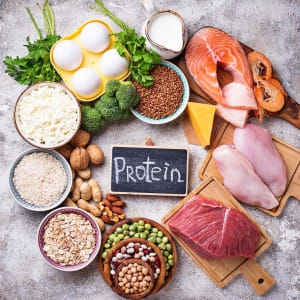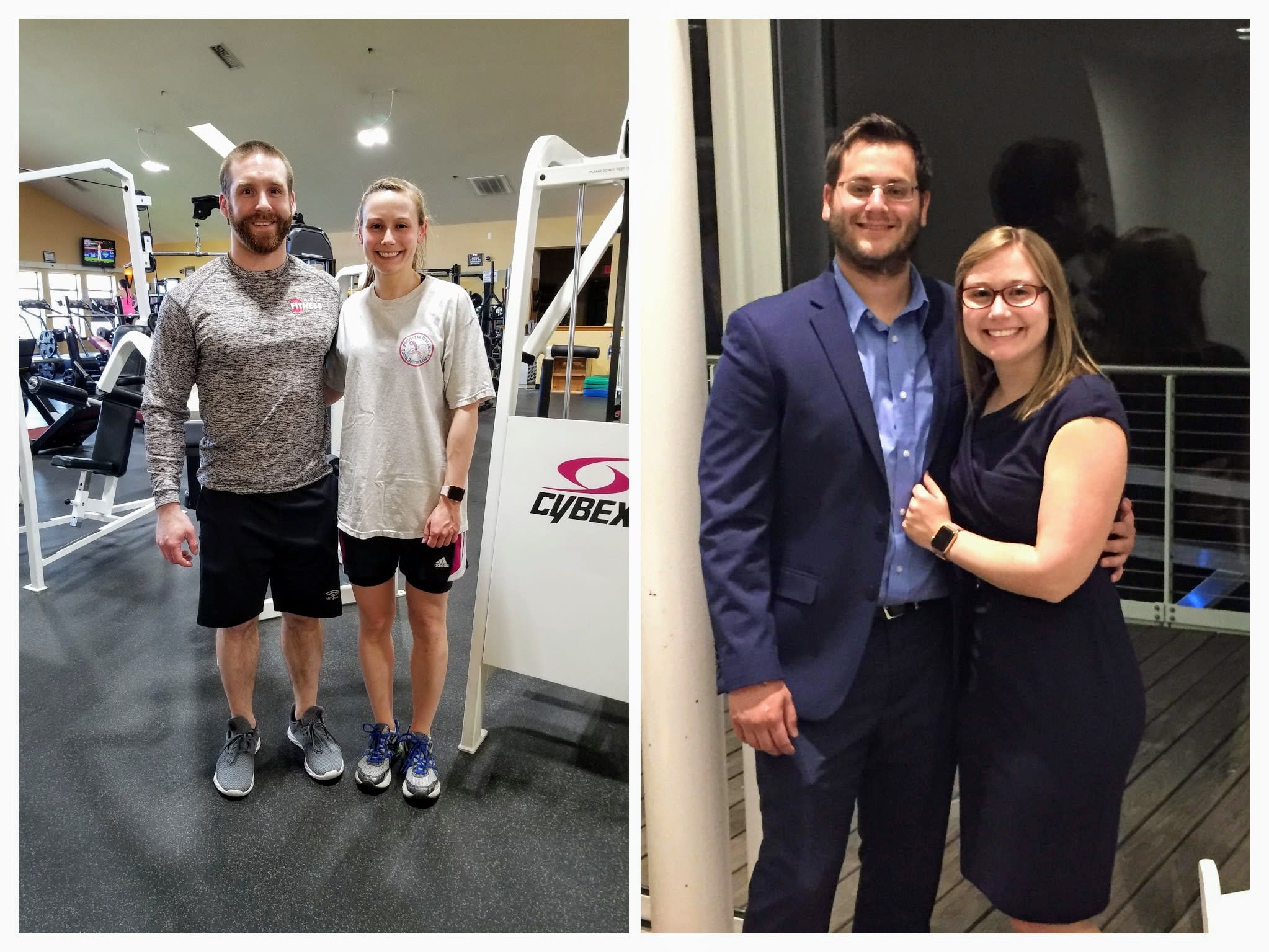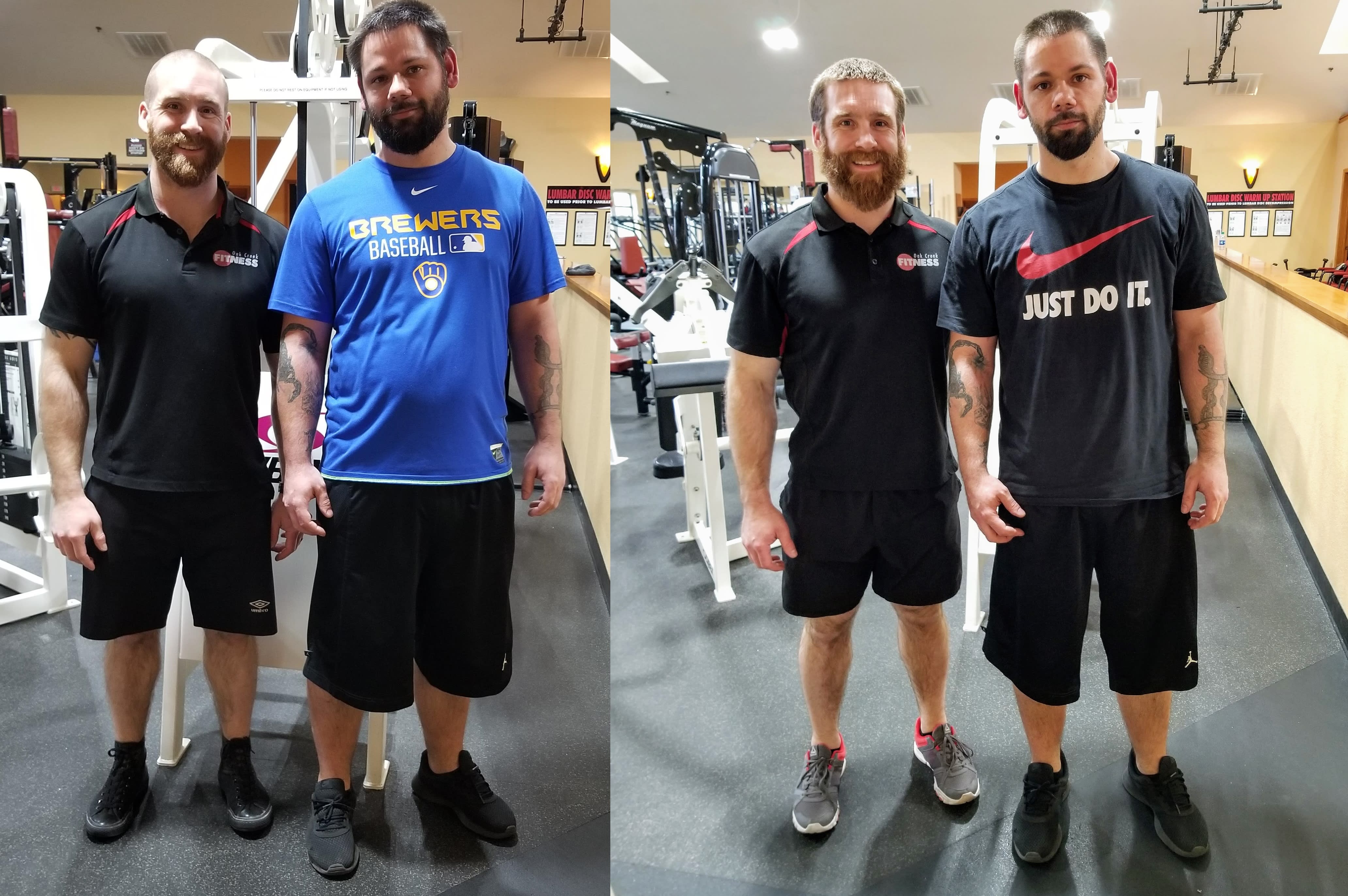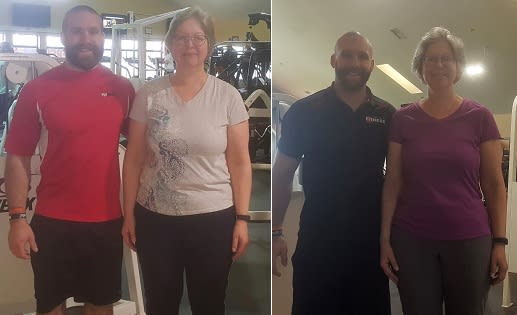
Proteins are the building blocks to a lot of objects in your body. Here is a small list of things made of protein in your body:
As we age, we need more protein to prevent muscle loss. If we workout or are very active, we need more protein to recover and repair.
Here are some recommendations for protein intake for individuals:
Protein also helps individuals with satiation (feeling full) and digests a bit slower. Because it digests slower, it helps regulate blood sugar and provides a higher thermogenic effect than carbohydrates. This means it takes more energy (calories) to digest proteins. It is recommended that individuals consume 15-30 grams of protein with each meal.
Here are some foods that are high in protein and will help you increase your overall protein intake:
There are more things to eat than this to increase your protein intake, but this is a nice start.
~Oak Creek Fitness

Kaitlyn in 5 Months:
-32 lbs body fat
-8 points visceral fat
-18.5% Body Fat
1 full push up on day 1 to 12 NOW!

Matt in 2 months:
-32 pounds body fat
-6 points visceral fat
-12% body fat

In 8 months:
-35 pounds of Body Fat
+ 2 pounds of Muscle
-9 % Body Fat